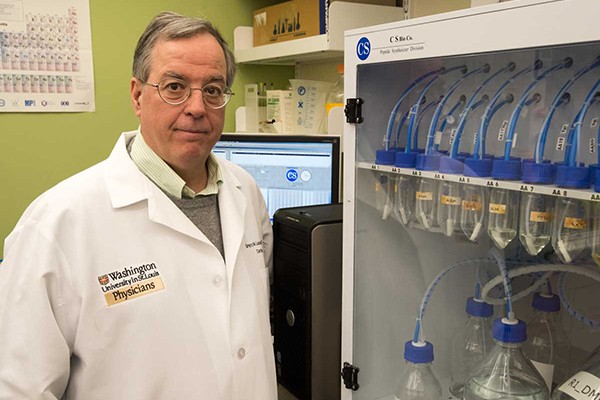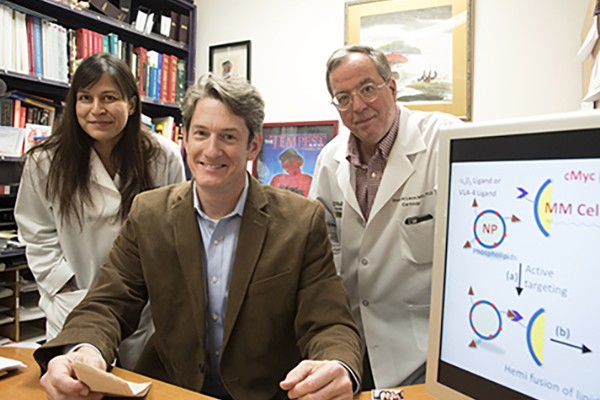Scientists receive $13.7 million to develop new multiple myeloma treatments
Researchers at the School of Medicine have been awarded $13.7 million from the National Cancer Institute (NCI) to create new therapies for multiple myeloma, a cancer of the immune system. Led by Samuel Achilefu, PhD, (pictured) and Gregory Lanza, MD, PhD, at the newly created Center for Multiple Myeloma Nanotherapy, scientists will work to develop nanomaterials and drugs to treat the disease.
Personalized drug screening on horizon for multiple myeloma patients
A personalized method for testing the effectiveness of drugs that treat multiple myeloma may predict quickly and more accurately the best treatments for individual patients with the bone marrow cancer. The process, developed by scientists at Washington University School of Medicine in St. Louis, also may aid patients with leukemia or lymphoma.
Nanotherapy effective in mice with multiple myeloma
Researchers have designed a nanoparticle-based therapy that is effective in treating mice with multiple myeloma, a cancer of bone marrow immune cells. Targeted specifically to the malignant cells, these nanoparticles protect their therapeutic cargo from degradation in the bloodstream and greatly enhance drug delivery into the cancer cells.
Discovery in bone marrow may improve chemotherapy, stem cell transplants
In research that one day could improve the success of stem cell transplants and chemotherapy, scientists have found that distinct niches exist in the bone marrow to nurture different types of blood stem cells.
Surprising culprit behind chemo resistance in rare cancer
Researchers led by Michael H. Tomasson, MD, at Washington University School of Medicine in St. Louis have shown how an aggressive form of multiple myeloma resists chemotherapy. Multiple myeloma is a rare cancer of plasma cells in the bone marrow. Though the finding has no immediate benefit for patients, the scientists say it could help guide research into better treatments.


